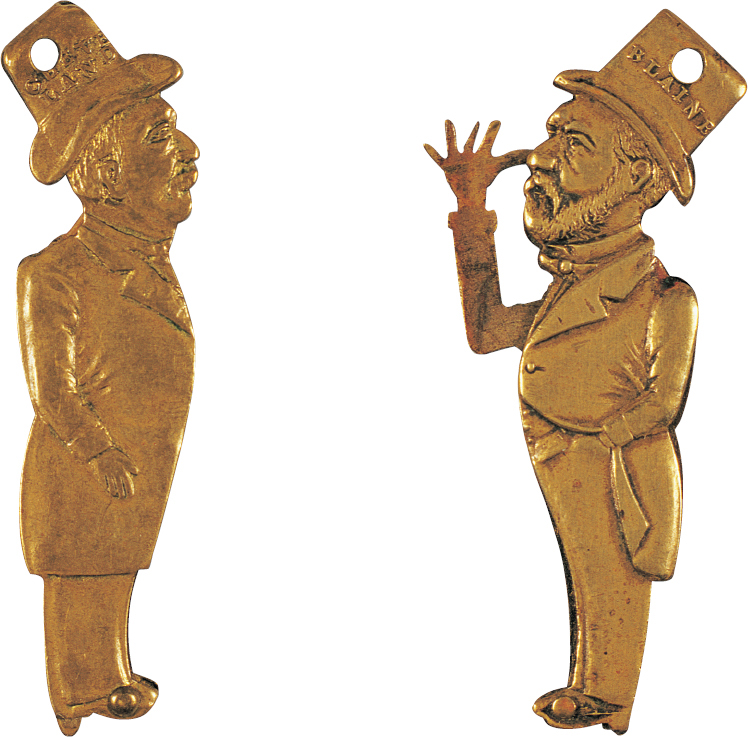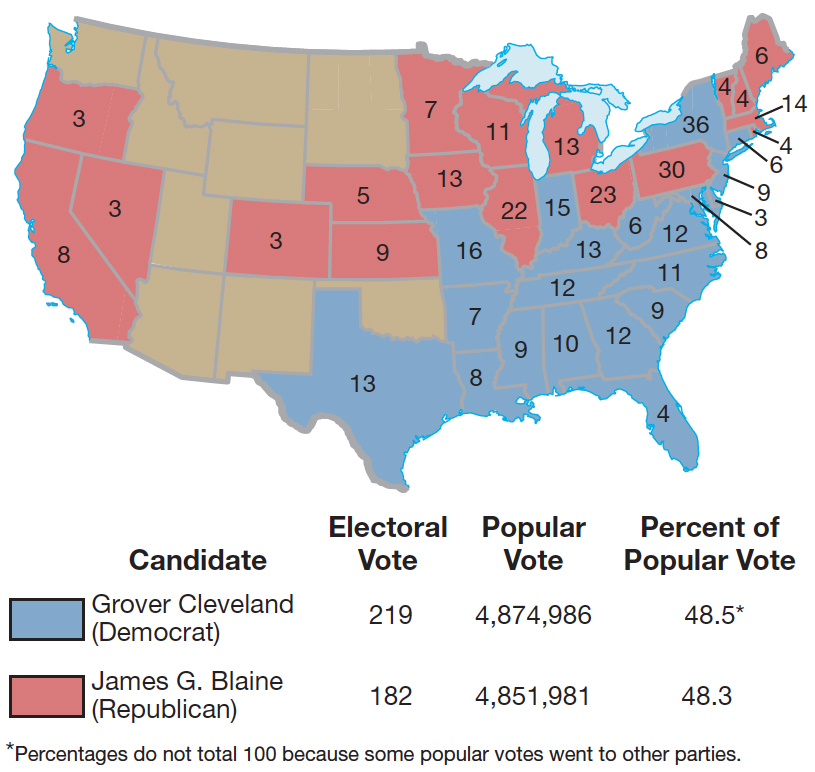Reform and Scandal: The Campaign of 1884
Printed Page 536
Section Chronology
James G. Blaine assumed leadership of the Republican Party and at long last captured the presidential nomination in 1884. A magnetic Irish American, Blaine inspired such devotion that his supporters called themselves Blainiacs. But Mugwump reformers bolted the party and embraced the Democrats’ presidential nominee, Governor Grover Cleveland of New York. The burly, beer-drinking Cleveland distinguished himself from a generation of politicians by the simple motto “A public office is a public trust.” First as mayor of Buffalo and later as governor of New York, he built a reputation for honesty, economy, and administrative efficiency. The Democrats, who had not won the presidency since 1856, had high hopes for his candidacy, especially after the Mugwumps threw their support to Cleveland, announcing, “The paramount issue this year is moral rather than political.”

CHAPTER LOCATOR
How did the railroads stimulate big business?
Why did the ideas of social Darwinism appeal to many Americans in the late nineteenth century?
What factors influenced political life in the late nineteenth century?
What issues shaped party politics in the late nineteenth century?
What role did economic issues play in party realignment?
Conclusion: Why did business dominate the Gilded Age?
 LearningCurve
LearningCurve
Check what you know.
The Mugwumps soon regretted their words. In July, Cleveland’s hometown paper, the Buffalo Telegraph, dropped the bombshell that the candidate had fathered an illegitimate child in an affair with a local widow. Cleveland, a bachelor, stoically accepted responsibility for the child. Crushed by the scandal, the Mugwumps lost much of their enthusiasm. At public rallies, Blaine’s partisans taunted Cleveland, chanting, “Ma, Ma, where’s my Pa?”
Blaine set a new campaign style by launching a whirlwind national tour. On a last-minute stop in New York City, the exhausted candidate committed a misstep that may have cost him the election. He overlooked a remark by a supporter, a local clergyman who cast a slur on Catholic voters by styling the Democrats as the party of “Rum, Romanism, and Rebellion.” Linking drinking (rum) and Catholicism (Romanism) offended Irish Catholic voters, whom Blaine had counted on to desert the Democratic Party and support him because of his Irish background.
With less than a week to go until the election, Blaine had no chance to recover from the negative publicity. He lost New York State by fewer than 1,200 votes and with it the election. In the final tally, Cleveland defeated Blaine by a scant 23,005 votes nationwide but won with 219 electoral votes to Blaine’s 182 (Map 18.2), ending twenty-four years of Republican control of the presidency. Cleveland’s followers had the last word. To the chorus of “Ma, Ma, where’s my Pa?” they retorted, “Going to the White House, ha, ha, ha.”

QUICK REVIEW